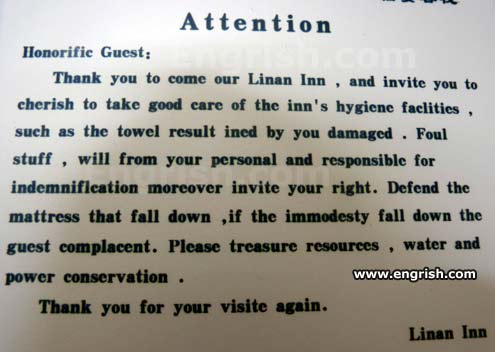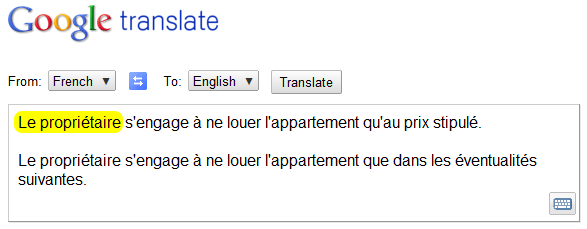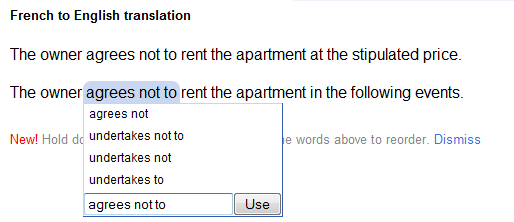
We've all seen the hilarious cases where machine translation produces utter gibberish. Such cases are a reminder of why you shouldn't rely on machine translation to translate into a language with which you are not familiar. But what about cases where the errors produced are more subtle and give and false sense of security?
Below is an example of a type of catastrophically erroneous translation produced by machine translation systems such as Google Translate, as a warning of the risks of using such systems. It serves as an example of why, while machine translation is an interesting field of research and has genuine applications when used with caution, it is not usually a substitute for a professional translation produced by a human translator.
You may be used to seeing translation disasters take the form of incomprehensible garbage. In such cases, although the system fails to produce an accurate or even comprehensible translation, there is arguably little harm done in the sense that the failure can at least be detected easily by a speaker of the target language. Or in other words, the reader hopefully knows to simply take no notice of a translation that is obviously nonsense (see right).
However, a more subtle danger of machine translation is the possibility of producing an apparently fluent sentence but which unfortunately means something different from the original source text. In some cases, the sentence produced can even mean the opposite of the original intended meaning.
In this example, virtually the opposite of the intended meaning arises because Google Translate is unable to capture the meaning of French ne ... que, meaning "only". Take the following sentences:

Google Translate offers the following translations:

Google Translate mistranslates these sentences to more or less the opposite of their meaning by inserting the presence of the word not. The actual interpretation of these sentences is that the apartment is to be rented only at the stipulated price and "in the following circumstances".
Google Translate offers the option to view some of the alternative translations of a particular section of the sentence that it was considering. Doing so in this case reveals an underlying problem: the system is considering as "alternative" translations phrases that essentially mean the opposite of one another.
So when deciding whether to rely on a machine translation, bear in mind that the system could produce serious but subtly undetectable errors. It isn't just the possibility of producing disfluent garbage that you need to watch out for if you rely on machine translation!
So what should you do?
If you are deciding between contracting a human translator or using a Machine Translation system, make sure that you aware of the dangers. Where appropriate, make sure that your boss is aware and make sure that your finance department is aware. A relatively small outlay for a proper translation produced by a skilled human translator may well prove to be the less costly option in the long run when you factor in the risks that you are taking with machine translation, including:
- the potential damage that you could inadvertently be doing to your company's reputation;
- the contracts that you may be inadvertently nulling and voiding;
- the employees' time that you may be inadvertently wasting by presenting them with incomprehensible and inaccurate documents;
- risks related to confidentiality if you are using on-line machine translation systems without being fully aware of how the supplying company may then use the text that you have submitted.
Does this sound alarmist? I send this stark warning because as a professional translator, I have seen first hand the damage done by material which companies have translated using Machine Translation systems, unaware of the likely consequences. You have been warned!
 Click here to return to the French Linguistics professional translation service
Click here to return to the French Linguistics professional translation service